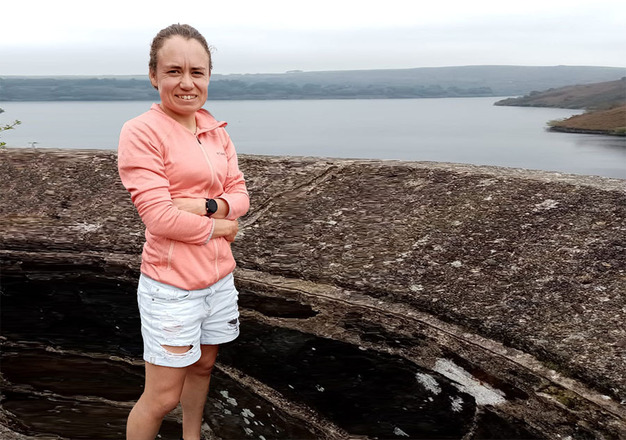Reflecting on university mental health

There's a perception that your university days should be the best of your life -surrounded by friends, with freedom and possibilities ahead of you, and before the responsibilities of adult and working life kick in fully.
But it's not the case for everyone and increasingly student mental health is a subject in the spotlight, particularly with the challenges of the past 12 months.
Thursday 4th March is University Mental Health Day, an awareness day which aims to make ongoing year-round changes to student mental health and support, and help young people realise that, whatever they're feeling, the chances are they're not alone.
It's something that definitely wasn't really talked about during my own university days.
For me, university was a time when I struggled with my own mental health. Looking back (with the obvious benefit of hindsight!) there were probably some signs and certain behaviours present throughout a lot of my time at university that my mental health wasn't as good as it could have been; however, the most notable time developed half way through my final year.
This came in the form of repetitive thoughts and worries of contamination. These seemed to develop almost overnight and then quickly expanded in nature and intensity.
At the time, it felt if it had come completely out of nowhere but, once it was there, I was completely unable to regain control of the constant stream of "but what ifs." Along with the thoughts came an overwhelming need to wash and keep myself and my belongings clean, and a need for reassurance in the decisions I was making.
Yet, despite being aware that things weren't right, it was easier to keep things to myself, hide what I was doing, and avoid getting help, in the hope it would all simply go away.
"Looking back, I often wonder what stopped me asking for help"
Looking back, I often wonder what stopped me asking for help - was it because I was scared? Was it easier to just try and cope? Did I hope and think it would just go away if I ignored it and didn't label it? But, more importantly, I wonder if I would have behaved differently knowing what I do now?
I've often asked myself the question if I'd had the knowledge and awareness of mental health that I do now, whether it would have made a difference and whether I would have looked for help? I'd like to think the answer to that question is yes but in truth, I still know that can be a case of easier said than done.
I've spent the last four years at LionHeart raising awareness of mental health and, prior to that, worked with people affected by poor mental health to improve their wellbeing through physical activity. I'm sure my own experiences probably drove that interest and the direction my career took. I can quite comfortably listen or have a conversation with someone about their mental health, or the subject in general - however, I'm still acutely aware how hard that conversation can be when it relates to yourself.
But why? Is it feeling vulnerable, not knowing how to start the conversation, or worry of the reaction it will generate in the person or people you're speaking to?
The hardest part is often starting the conversation - finding that first word or sentence. Then come the feelings of comfort and relief of the feeling that you are not alone.
"The more we talk, the less people bury their heads in the sand"
We spend a lot of our time talking to educated and professional people about how hard it can be to acknowledge the feelings of weakness, shame even, about poor mental health. There is absolutely no doubt that things have changed and continue to change, and there is much more openness about the issue than there used to be. But I am convinced that the earlier we can normalise these conversations - in university, definitely, but also in schools - the less people will bury their heads in the sand, as I did, and simply hope it will all go away, and the more open they will be to getting help and support to manage at the earliest opportunity.
For myself, it wasn't until my mid 20s that I managed to have more control over the thoughts and actions that had begun as a final year student. I'm also willing to admit that the last, challenging, year has sometimes given rise to unwanted thoughts. Fortunately, now, I feel better equipped to acknowledge when things are 'wobbly' and better able to deal with them.
Mental health is something that we all have and that is always with us, good or bad. That's something I hope University Mental Health Day - and the multitude of similar awareness days - helps to highlight, so fewer people feel they have to struggle alone.
Jo Grant is LionHeart's wellbeing projects development lead, managing our mental health training and mental health ambassador programme.
Find out more:
- Surveying students can now access our range of wellbeing and mental health webinars. Find out more about our student support here
- LionHeart counselling service


